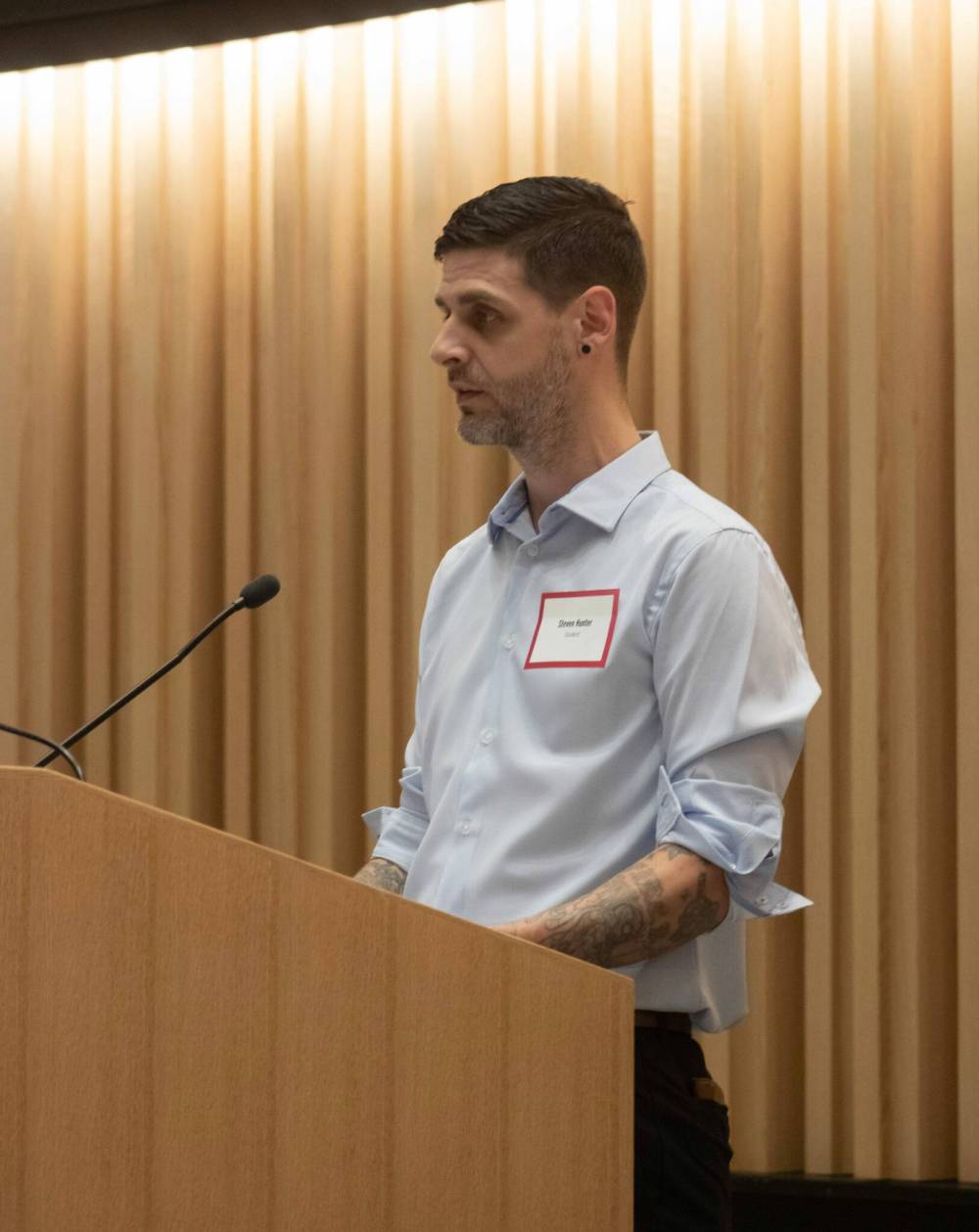‘Use my experiences to help others’: RRC Polytech celebrates first shelter support worker grads
Advertisement
Read this article for free:
or
Already have an account? Log in here »
To continue reading, please subscribe:
Monthly Digital Subscription
$1 per week for 24 weeks*
- Enjoy unlimited reading on winnipegfreepress.com
- Read the E-Edition, our digital replica newspaper
- Access News Break, our award-winning app
- Play interactive puzzles
*Billed as $4.00 plus GST every four weeks. After 24 weeks, price increases to the regular rate of $19.00 plus GST every four weeks. Offer available to new and qualified returning subscribers only. Cancel any time.
Monthly Digital Subscription
$4.75/week*
- Enjoy unlimited reading on winnipegfreepress.com
- Read the E-Edition, our digital replica newspaper
- Access News Break, our award-winning app
- Play interactive puzzles
*Billed as $19 plus GST every four weeks. Cancel any time.
To continue reading, please subscribe:
Add Free Press access to your Brandon Sun subscription for only an additional
$1 for the first 4 weeks*
*Your next subscription payment will increase by $1.00 and you will be charged $16.99 plus GST for four weeks. After four weeks, your payment will increase to $23.99 plus GST every four weeks.
Read unlimited articles for free today:
or
Already have an account? Log in here »
Hey there, time traveller!
This article was published 18/07/2023 (830 days ago), so information in it may no longer be current.
Red River College Polytechnic, sector advocates and students are celebrating the first cohort to complete its shelter support worker micro-credential pilot program.
On Tuesday, 25 students graduated from the free online training initiative that began in January, and taught them about the shelter intake process and assessment, crisis management, case planning, incident reporting, trauma-informed care, cultural differences and the impact of colonialism.
It also offered the opportunity to specialize in family violence or homeless shelters, including a capstone project and 20-hour practicum to gain experience.

Mike Thiessen / Winnipeg Free Press
The first cohort of students to complete RRC Polytechnic’s Shelter Support Worker Micro-credential program, including Steven Hunter, were celebrated on Tuesday.
“(This) program allows the family violence and homeless sectors to build capacity, reduce barriers to care, and better support those affected by gender-based violence and housing instability,” said Deena Brock, provincial co-ordinator for the Manitoba Association of Women’s Shelters.
Shelters across the province have struggled to attract and retain workers in recent years, compounded by the COVID-19 pandemic, due in part to a lack of consistent and quality trauma-informed training, advocates said.
On Tuesday, program grad Steven Hunter was also celebrating for personal reasons.
“When I heard about this program, it seemed like a good opportunity for me to see if I could find a way to use my experiences to help others,” said Hunter, who has experienced homelessness, addiction, overdose, imprisonment and street violence.
Hunter was 15 when he began living in shelters. At 19, he started experimenting with methamphetamine to cope with the pain of being abandoned by family, and eventually committed crimes to fuel his drug habits.
After spending two years in jail, he wanted to change his life for the better, Hunter said.
The program brought his life experiences full circle, when he started a work placement at the Salvation Army Centre of Hope.
“The last time I was at the Centre of Hope, I was a client there myself, staying in the emergency homeless shelter,” said Hunter. “I knew that if I wanted to do this, it would be very hard and it would bring up past traumas.”
Following his practicum, Hunter was offered full-time employment as a residential care worker.
It’s important for shelter workers to be empathetic, have trauma-informed training and good boundary-setting skills, Brock said. “When somebody is in crisis and they show up at the shelter, they need to know they will be respected and get the type of help they need.”
Brittany Young completed the program to accompany her work experience as a women’s counsellor and co-ordinator at Samaritan House Ministries’ Mary’s House shelter.
“You’re using a flashlight to guide (clients) to their answers that you want them to figure out for themselves, so it helped me be that person to hold the flashlight,” said Young.
Families Minister Rochelle Squires said the province is seeing increased amounts of gender-based violence and the “homelessness crisis is certainly not going away.”
“Shelter workers are going to be meeting people at the most vulnerable times of their life… and being able to offer hope, inspiration and a path forward to these people is certainly something that is a true gift,” said Squires.
In 2022, the province committed $450,000 (through the Canada-Manitoba Workforce Development Agreement) to fund the creation of the shelter support worker micro-credential program.
tessa.adamski@freepress.mb.ca


